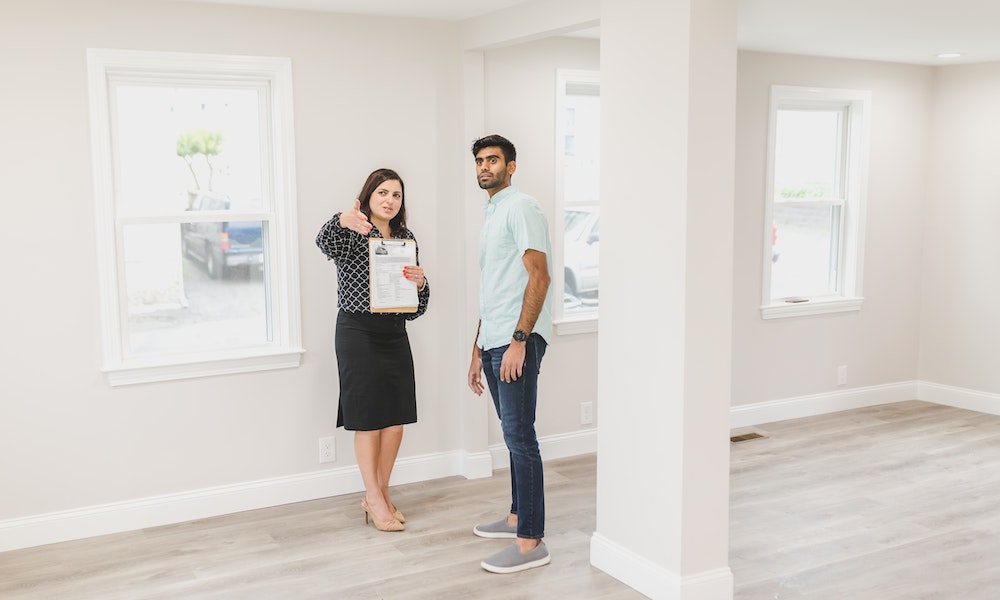
The state of Massachusetts is a wonderful real estate location to consider for your next home. However, buying a home in the area costs more than the national average. It’s not uncommon to see the down payments and ownership costs on a Massachusetts home careen beyond $150,000.
But all that shouldn’t scare you out of a purchase deal. An excellent saving culture can eliminate the higher commitments on a Massachusetts home.
How much savings do we mean? Track with us as we examine cost sections on the regular Massachusetts home alongside noteworthy tips associated with buying a home in Massachusetts and its suburbs.
Ready? Let’s get started!
Cost Sections on a Massachusetts Home
The average ownership cost of a Massachusetts home isn’t a monolith of mortgage payments. Instead, it’s segmented into different expenses, each spaced out throughout the duration of the purchase deal.
Below are the major cost sections to note when buying a Massachusetts home:
Down Payments
Down payments are the single largest purchase cost for a Massachusetts home, constituting up to 20% of the house’s total expenses. How much is a down payment on a house in Massachusetts? In many cases, the minimum down payment required to buy a property in Massachusetts depends on the type of loan you intend to use.
Conventional loans typically require a down payment of 3-5% of the purchase price, while FHA loans require a minimum 3.5% down payment on a 150,000 house. VA loans may not require a down payment or mortgage loan at all.
Also, Massachusetts offers several down payment assistance programs that help first-time homebuyers and other eligible buyers with their down payment and closing costs. These programs may provide grants, loans, or other forms of assistance.
If you make a down payment of less than 20% of the purchase price, you may be required to pay for mortgage insurance. It’s the homeowners’ insurance — an additional cost designed to protect the lender in case you default on the loan.
For anyone asking, “how much down payment for a 100k house in Massachusetts?”, automatic savings transfers are a great way to settle expenses that crop up along the way.
Earnest Money Deposit
The earnest money deposit is another major cost component when buying a home in Massachusetts. Think of it as a “good faith” deposit the seller takes as a sign you’ll follow through with the property purchase.
It’s typically held in an escrow account by a third party until the buyer and seller have signed a purchase agreement, just before the sale gets finalized
In Massachusetts, earnest money could set you back up to $17,000, constituting 1-3% of the purchase price. However, the final deposit can vary depending on your loan limits, the actual purchase price of the property, and other factors.
If the property sale falls through due to an existing contingency (i.e., a failed home inspection) in the purchase agreement, the earnest money deposit is returned to the buyer. However, if the buyer backs out of the sale for other reasons not covered by a contingency, the seller may keep the earnest money deposit.
You may want to protect your earnest money deposit as the purchase process progresses. An excellent idea is ensuring the purchase agreement includes clear contingency clauses that allow you to back out of the sale if the seller doesn’t meet certain conditions.
Also, consider working with a reputable real estate agent and attorney to ensure the earnest money deposit is handled properly and held in a secure escrow account.
Moving Cost
The buyer must make provisions for moving costs, as part of the overall cost of buying a home in Massachusetts. Generally, the moving cost only becomes necessary after the buyer and seller have closed the purchase deal.
Also, moving costs can vary depending on a number of factors, including the distance of your move, the amount of belongings in question, and whether you’d hire professional movers or opt to do it yourself.
Should you decide to hire professional movers, you can expect to pay a fee based on the distance of your move and the amount of belongings you have.
Thankfully, you can request quotes from different moving companies to compare prices and services. It’s worth mentioning that some moving companies may charge additional fees for services like packing and unpacking, storage, or moving fragile or bulky items.
How about moving by yourself? You’ll need to factor in the cost of renting a moving truck and associated fees like insurance. You may also need to purchase packing supplies and pay for any help you need with loading and unloading your belongings.
Another noteworthy scenario is when you’re moving for work. You may be able to chalk off some of your moving expenses from your taxes. However, you must meet specific requirements to qualify for that deduction.
Overall, it’s important to plan ahead and start packing early. That helps you keep your moving costs as low as possible. A neat tip is getting rid of items you no longer need before the move to reduce the amount of belongings you need to transport.

Closing Costs
As the name suggests, the closing costs on Massachusetts homes kick in when the buyer and the seller are about to seal the purchase deal. However, it’s worth mentioning that closing costs isn’t an expense you’d have to pay at once. There are different closing costs, and each can cumulatively increase.
The specific closing costs you get to pay for a property in Massachusetts depends on the type of property, the location, and the overall terms of your purchase agreement.
Below are some common closing costs you may encounter when trying to buy a property in Massachusetts:
-
Property Transfer Taxes
Massachusetts charges a tax on the transfer of real estate. Typically, this tax gets paid by the seller, but the buyer may be responsible for a fraction of it in the long run.
-
Title Search and Insurance
A title search must precede a property sale. Why? To ensure there are no liens, outstanding mortgages, or other claims on the property. Title search costs fall on the buyer.
Also, title insurance may be necessary in the closing cost. It protects the buyer from any undiscovered title issues, and the buyer’s mortgage insurance premium covers it.
-
Appraisal Fees
An appraisal is the general assessment of the value of the property in question. The buyer pays for it, but a third-party lender might cover for it in some cases.
-
Home Inspection Fees
A home inspection must happen before the property purchase deal gets closed. This activity identifies any potential structural issues. As the buyer, you can include home inspection fees in your closing costs.
-
Attorney Fees
In Massachusetts, it’s not unusual for home buyers and sellers to have their attorneys represent them during the closing process. It’s a recommended property purchase practice, and the cost of these lawyers is footed by the party they represent.
-
Other Fees
Other closing costs may include loan origination fees, discount points, prepaid, interest rate, and other miscellaneous fees. These costs will vary depending on the terms you honor on your purchase agreement.
Note that closing costs and real estate taxes can add up quickly and significantly impact your budget. Thus, review your purchase agreement carefully with a real estate attorney. You can also check through with your lender and attorney to understand all transaction costs.
Tips on How to Save Money to Buy a Home in Massachusetts
Buying a house in Massachusetts is a significant investment, especially since the total purchase cost is higher than the national average.
How do you get enough financing to see you through the purchase process? The following are some tips to help you save your loan amount of money when buying a house in Massachusetts:
1. Determine Your Budget
As cliché as it might sound, it’s important to set a clear budget before you start house hunting. You can start by considering your main income, debts, and other expenses to determine how much you can afford to spend on a house.
Doing this lets you avoid overspending and ensure you find a house that meets your needs and fits your budget.
2. Explore Homebuyer Programs
Homebuyer programs are designed to help first-time buyers and those with lower incomes or credit scores purchase a home in Massachusetts.
These programs can offer a range of benefits, including assistance on the down payment on a 800k house, low-interest loans, and other financial incentives that can make buying a home more affordable.
Prime examples are STASH and Operation Welcome Home. You may also consider other options that offer down payment assistance, low-interest loans and credit counseling.
3. Work With a Real Estate Agent
Finding a knowledgeable real estate agent can make all the difference when saving up for a Massachusetts home. They can help you find the best deals on houses in your desired neighborhood.
Furthermore, they can provide you with valuable insights into the local real estate market, negotiate with sellers, and guide you through the whole home buying process.

4. Shop Around for a Mortgage
One of the biggest expenses when buying a house is the down payment. As such, it’s important to shop around for the best mortgage rates and terms to keep up your monthly payment.
Also, consider working with a mortgage broker, who can help you compare rates and find the best loan for your needs.
5. Consider Fixer-Uppers
A fixer-upper is an excellent way to save some buck when buying a house in Massachusetts. You can start by looking for homes requiring minor repairs or cosmetic upgrades.
Why? Associated corrections are often inexpensive.
However, ensure the home is inspected by a professional to avoid major issues that could end up costing you more in the long run.
Wrapping Up
There’s no dancing around it: buying a home in Massachusetts can get challenging pretty quickly, especially in terms of financing. You must keep track of the various cost sections along the way.
However, you can increase your chances of saving money and finding a home that fits within your budget with some of the tips discussed above.
In conclusion, you can save money and successfully navigate the home buying process in Massachusetts by being proactive, doing your research, and taking advantage of the resources available to you.
FAQs
How Much Money Do You Need to Save to Buy a House in Massachusetts?
The amount of money you need to save to buy a house in Massachusetts largely depends on the price of the home, your down payment, and other closing costs.
Generally, it’s a great idea to aim to save at least 20% of the purchase price of the home for your down payment, plus an additional 3-5% for closing costs.
For instance, if you’re looking to purchase a home for $300,000, save at least $60,000 for your down payment and an additional $9,000-$15,000 for closing costs.
However, note that the actual amount you need to save will depend on your individual financial situation and the specific details of your home purchase.
How Much Do You Have to Make to Buy a House in Massachusetts?
It’s largely variable: lenders assess your debt-to-income ratio (DTI) when determining whether you qualify for a mortgage. Your DTI is calculated by dividing your total monthly debt payments by your gross monthly income.
Most lenders prefer a DTI of 43% or lower, although some lenders may be willing to work with borrowers with higher DTIs.
You can also use a mortgage calculator to estimate your monthly mortgage payment on your chosen home. That way, you’ll uncover a home that suits your finances.
How Much Is the Average Home in Massachusetts?
The median home value in Massachusetts was $558,313 according to real estate reports. This value is significantly higher than the national median home value of $292,141.
Still, the average home price can vary widely depending on the location, size, and condition of the home.
Looking to get some deals on Massachusetts home listings? Ardor Homes Massachusetts is in the business of getting you the best property recommendations online. So why wait? Contact us today to learn more about our services and how we can help you get closer to your dream home.

In her 25-year career, Steph Wilkinson has been involved in the acquisition, marketing and sales of over $3 Billion dollars of residential real estate. A number of years ago, Steph transitioned into Brokerage Leadership for National real estate brands and tech start-ups. She has served as a Business Strategist for real estate agents and brokerages alike and is also a real estate coach and trainer. In her new role with the Iconic Team, Steph will be responsible for the growth of the team and will be working with all of our agents to increase their productivity and bottom line.




